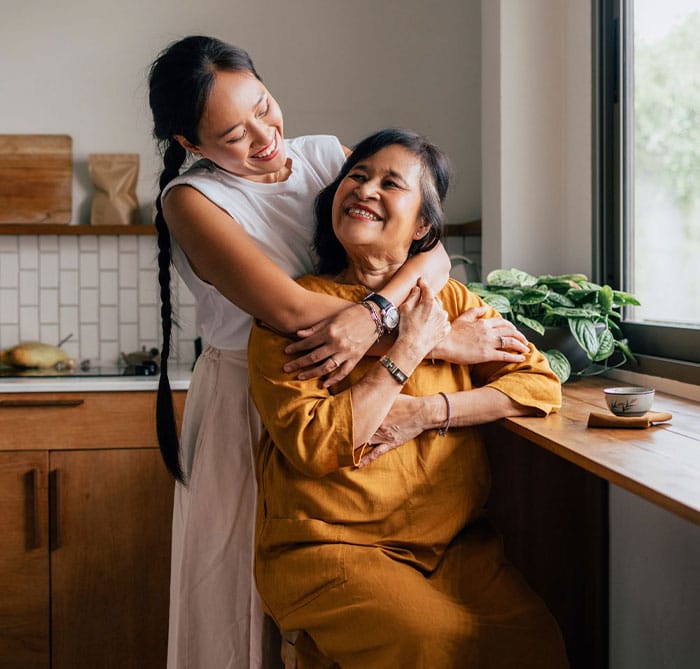TL;DR Summary: Every woman needs an estate plan, although their priorities may change depending on their life stage. Here are some common issues women may face throughout their lives, and how to create an empowering estate plan at any age that addresses these issues.
When most people hear the words estate planning, they picture someone at the end of their life, or a wealthy couple with sprawling assets. But here’s the truth: every woman, whether she’s 25 or 85, single or married, a mother or child-free, a business owner or retired, needs an estate plan.
At Goff Legal, our experienced estate planning attorneys see it all the time. Women often take on roles as caregivers, organizers, nurturers, and financial decision-makers. But too many women put off estate planning, thinking it doesn’t apply to them. The reality? Without a plan in place, the people you love and the assets you’ve worked hard to build could face unnecessary stress, costs, and conflict.
This post will walk you through why every woman needs an estate plan (no matter her stage of life), the unique issues women face, and how creating a plan empowers you to take control of your future.
Why Estate Planning Is Especially Important for Women
While everyone benefits from estate planning, women face particular considerations:
- Longevity: Women statistically outlive men by about 5–6 years. That means many women will either manage their spouse’s estate or spend years on their own making financial and healthcare decisions.
- Wealth Transfer: Women are increasingly inheriting wealth from parents, spouses, or through their own careers and investments. Without a plan, that wealth may not be managed or distributed the way they’d like.
- Caregiving Roles: Women are often caregivers for aging parents, spouses, or children with special needs. Estate planning ensures the right protections and resources are in place.
- Life Transitions: Divorce, remarriage, widowhood, business ownership, and retirement all create turning points where women’s estate planning needs shift.
An estate plan isn’t just about passing on assets; it’s about protecting yourself, your independence, and the people you care about.
Estate Planning in Your 20s and 30s: Building the Foundation
When you’re younger, it’s easy to assume estate planning can wait. But even at this stage, certain documents are crucial:
1. Healthcare Decisions
Accidents or unexpected illnesses can happen at any age. An advance healthcare directive and durable power of attorney ensure someone you trust can step in if you’re unable to make medical or financial decisions.
2. Protecting Young Families
If you have children, your estate plan should designate guardians. Without it, the court (not you!) decides who will raise your kids.
3. Managing Digital Assets
From bank accounts to social media, young women often have a large digital footprint. Your estate plan can outline how those accounts are accessed or memorialized.
Pro Tip: Even if you don’t have significant wealth yet, starting early sets you up to update your plan easily as your assets and responsibilities grow.
Estate Planning in Your 40s and 50s: Protecting What You’ve Built
By midlife, many women are juggling careers, homeownership, children, and perhaps caring for aging parents. Your estate plan at this stage should reflect the complexity of your life.
1. Trusts for Asset Protection
A revocable living trust helps you manage property, avoid probate, and ensure your assets pass smoothly to your chosen beneficiaries.
2. College and Education Planning
If you have children, you may want to set up trusts that fund their education while protecting them from mismanaging money.
3. Blended Families
Second marriages can complicate inheritance. Without a plan, children from prior relationships may be unintentionally disinherited. A carefully drafted estate plan ensures fairness and clarity.
4. Business Ownership
If you own a business, succession planning ensures your hard work doesn’t dissolve overnight. You can designate who will manage or inherit your business and how transitions should be handled.
Estate Planning in Your 60s, 70s, and Beyond: Preserving Your Legacy
Later in life, estate planning is about security and legacy. Women at this stage are often concerned with simplifying, protecting, and giving back.
1. Health Care and Long-Term Care
With longer life expectancy, planning for healthcare costs, including Medi-Cal or long-term care coverage, is critical. An estate plan can include trusts to protect assets while ensuring you qualify for needed care.
2. Inheritance Planning
Do you want to leave something to grandchildren, charities, or nonprofits? Estate planning ensures your legacy aligns with your values.
3. Avoiding Family Disputes
Clear documents minimize conflict among adult children or other heirs. Trusts, clear beneficiary designations, and communication prevent “surprises” that often cause family rifts.
4. Specialized Trusts
Tools like charitable remainder trusts or special needs trusts provide for loved ones while protecting tax benefits and ensuring resources are used wisely.
Life Events That Signal It’s Time to Update Your Plan
Even if you’ve already created an estate plan, it needs regular updating. Key triggers include:
- Marriage or divorce
- Birth or adoption of a child or grandchild
- Purchasing or selling a home
- Inheriting assets
- Starting or selling a business
- Relocating to another state
- Health changes or a spouse’s passing
Think of your estate plan as a living document that grows with you.
Common Misconceptions Women Have About Estate Planning
At Goff Legal, we often hear these myths:
- “I don’t have enough assets to need a plan.” Even if you don’t own a home or large investments, you need healthcare directives and powers of attorney.
- “My spouse will handle everything.” If you outlive your spouse (which is statistically likely), you’ll need your own plan. And don’t forget, if you have a spouse, that doesn’t mean you will inherit everything if they haven’t set up an estate plan.
- “I’ll do it later.” Life is unpredictable. Having a plan in place gives you peace of mind now.
- “Estate planning is too complicated.” With the right attorney, the process is straightforward, clear, and customized to you.
The Empowering Side of Estate Planning
Far from being a gloomy task, estate planning can be one of the most empowering steps you take. It’s about:
- Control: You decide who makes decisions, how assets are distributed, and what kind of care you receive.
- Protection: Your children, spouse (for married women), and loved ones are shielded from uncertainty and conflict.
- Peace of Mind: You can move forward confidently knowing your affairs are in order.
At Goff Legal, we see the relief on clients’ faces when they finish their plans. They walk out lighter, knowing their wishes are honored and their loved ones are secure.
How Goff Legal Helps Women at Every Stage
As a woman-owned boutique estate planning law firm, we understand the unique needs women face. Whether you’re:
- A young professional just starting out
- A mom juggling kids and caregiving
- A widow navigating new responsibilities
- A retiree focused on legacy
…we meet you where you are. Our team listens carefully, explains options clearly, and helps you design a plan that fits your life and goals.
Final Thoughts: Estate Planning Is for Every Woman
No matter your age, income level, or family situation, estate planning is essential. It’s about more than money; it’s about your health, independence, loved ones, and legacy.
The best time to create or update your estate plan is now. Waiting only increases the risk of court involvement, family stress, and outcomes you wouldn’t have chosen.
Ready to Take the First Step?
At Goff Legal, we make the process approachable, personalized, and empowering. Whether you’re starting fresh or updating an existing plan, our experienced estate planning attorneys are here to guide you.
Contact us today to schedule your free discovery call and take control of your future with confidence.
FAQs: Estate Planning for Women at Every Stage of Life
Do single women really need an estate plan if they don’t have kids?
Yes. Even without children, an estate plan ensures your healthcare wishes are honored, your assets go where you want (such as to friends, siblings, or charities), and someone you trust can manage your affairs if you’re unable to. Without a plan, the state decides what happens.
How often should I update my estate plan?
We recommend reviewing your plan every 3–5 years or after any major life event—such as marriage, divorce, the birth of a child, buying or selling a home, or receiving an inheritance. Keeping your plan current prevents gaps and avoids confusion later.
What happens if I don’t create an estate plan in California?
If you pass away without a plan, California’s intestacy laws determine who inherits your assets. This could mean distant relatives inherit instead of the people or charities you would have chosen. In addition, your estate will likely go through probate—a public, costly, and time-consuming process.
What documents are most important for women just starting out with estate planning?
At a minimum, you’ll want a will, financial power of attorney, and an advance healthcare directive. Depending on your assets, a living trust may also make sense. These core documents protect your decisions and loved ones, even if your estate isn’t large.
How can an estate plan help women who outlive their spouses?
Because women often live longer than men, many find themselves managing their spouse’s estate and then facing their own planning needs. Having your own estate plan ensures you don’t carry the burden alone—it gives you clarity, streamlines transfers, and protects your independence during widowhood.
Goff Legal, PC is a woman-owned boutique California law firm dedicated to guiding clients through the complexities of Estate Planning, Trust Administration, and Probate. Led by attorney Alexandria “Ali” Goff, we provide personalized legal services designed to protect families, preserve legacies, and bring peace of mind.
Written by Goff Legal, PC

